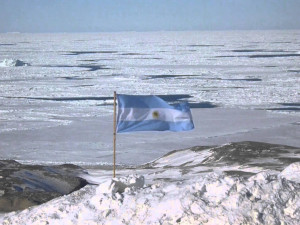Our group study physiological capacities and the use of the biotechnological potential of the microorganisms of extreme cold climate environments, mainly the Antarctic. We study the capacity of Antarctic microorganisms to use hydrocarbons derived from petroleum as a source of carbon and energy. These compounds are present in the vicinity of Antarctic bases and represent the main source of pollution in Antarctic areas. Both due to extreme environmental conditions and strict international environmental regulations, the use of native microorganisms to Antarctica is the only viable option for the development of in situ bioremediation processes that help mitigate the impact of fuel contamination. For this reason, several microbial strains that degrade hydrocarbon have been isolated and studied, and work is carried out (both in the laboratory and in field trials) on the design and optimization of bioremediation processes that involve both biostimulation and bioaugmentation strategies.
We also study the capacity of Antarctic psychrophilic microorganisms to produce metabolites of biotechnological potential. Active proteases have been isolated and characterized at low temperature and bioprospecting studies have been carried out that also include the production of other enzymes of industrial interest (lipases, cellulases, chitinases, etc.) as well as the ability to biotransform or degrade toxic compounds, such as molybdate, dyes and phenolic compounds. These studies involve both bacteria and yeasts and Antarctic filamentous fungi.
Finally, the microbial divers ity of the Antarctic ecosystems is studied in order to contribute to the knowledge of the country's genetic resources and to have new biological sources of natural products capable of being used in biotechnological processes.
ity of the Antarctic ecosystems is studied in order to contribute to the knowledge of the country's genetic resources and to have new biological sources of natural products capable of being used in biotechnological processes.
Given the low proportion of cultivable microorganisms existing in natural environments, these studies are based on molecular biology techniques, such as DGGE, T-RFLP, ARISA, clone libraries, metagenomics and metabolomics. Rhodopsins, DNA polymerases and the production of magnetic nanoclats are some of the focuses of our work.